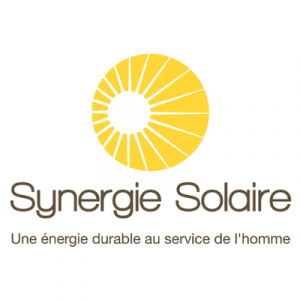For those living in Baringo County, Kenya, increasingly sporadic rainfall patterns have deeply impacted food security and forced people to walk up to five kilometers to find a clean water source. ACTED has intervened to provide water via a solar-powered system which is halting the spread of water borne disease.
Climate change is forcing communities to rely on unsafe water sources
Baringo County is subject to frequent droughts which have compromised the ability of residents to subsist from the land, thus leading to the poorest rates of nutrition at the national level. Reliable water sources remain scarce and most families depend on water sourced from ponds, dams or springs. In 2018, the risks of such an approach became all too apparent: with a spike in reported cases of diarrhea, typhoid, vomiting, and scabies.
Ruth, a 42-year-old house wife and mother of six coped with an inadequate water supply in the village of Churo for years on end, walking for hours to locate a clean water supply. As the years wore on, and the rain seasons became increasingly unpredictable, it became apparent that even this desperate approach could only endure for so long.
Clearly action had to be taken to fight the recurrence of water-borne diseases and reduce the amount of effort deployed in collecting water from distant sources.
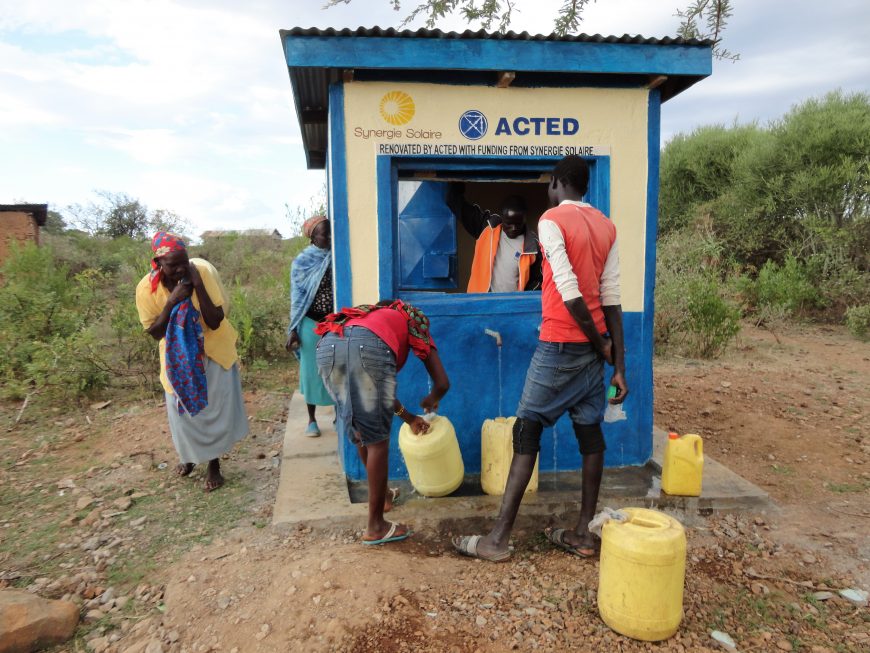
Baringo County is characterized by high levels of poverty, frequent droughts, and subsequently residents face some of the highest levels of malnutrition found in Kenya.
Solar power brings clean water back to Churo village
Churo village used to rely on a single borehole for all clean water. This was powered by a fuel generator to pump water to the surface. When this generator broke down due to overuse, it was at this moment that the community was forced to turn to unsafe water sources due to not having the capacity to mend the generator.
ACTED, with funding from Synergie Solaire, decided to intervene through providing a hybrid water system which uses solar panels to power the water pump. With the solar system in place, the cost of operation and maintenance has fallen dramatically (from 0.04 EUR to 0.02 EUR per jerry can of water extracted).
The project also supported water access to Churo’s health facility which provides maternity care and nutrition support for community members. A lack of water had previously prevented the continuation of maternity support services. Now that a constant supply of clean water has been re-established, these services have returned.
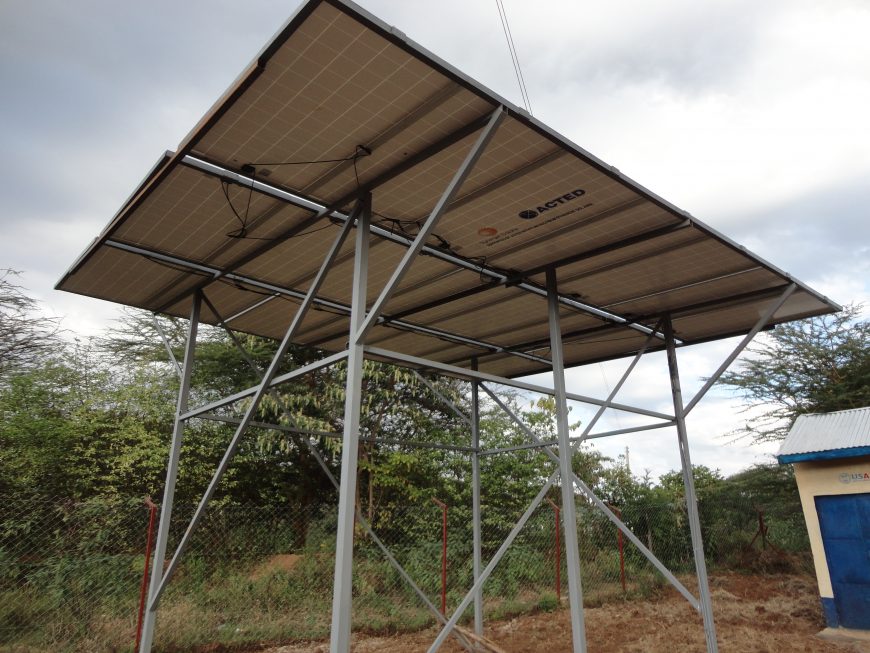
No more queues or long distance walks
When ACTED rehabilitated the Churo borehole, Ruth and the members of the community benefited immensely: Women and children from the village, who previously wasted hours each day in the search for water or queuing at the local unprotected water sources, could now engage in other productive activities to the betterment of their families. The previous lack of water led many families to skip meals or rely on milk in the place of food, hence reducing their intake of nutritional foods. Perennial droughts for many years discouraged households from engaging in farming activities, which resulted in poor dietary habits and malnutrition.
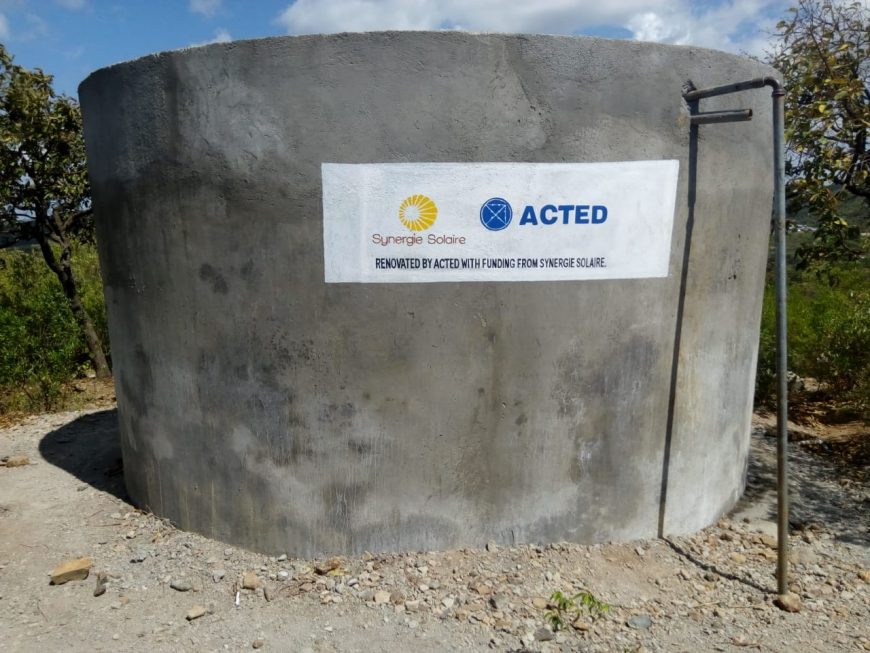
Ruth turns the water challenge into an opportunity, creating a thriving kitchen garden
Once the borehole was active, ACTED organized Water Management Committees to manage the resource, creating a communal compound area in its proximity to be used for the cultivation of vegetables. Ruth was first among the community to put in the time to create a kitchen garden, where she now grows kale, spinach, and tomatoes. The garden is sufficient to provide for her family, and to generate a small income. Ruth now plans to expand and diversify the garden to cater for local market demand.
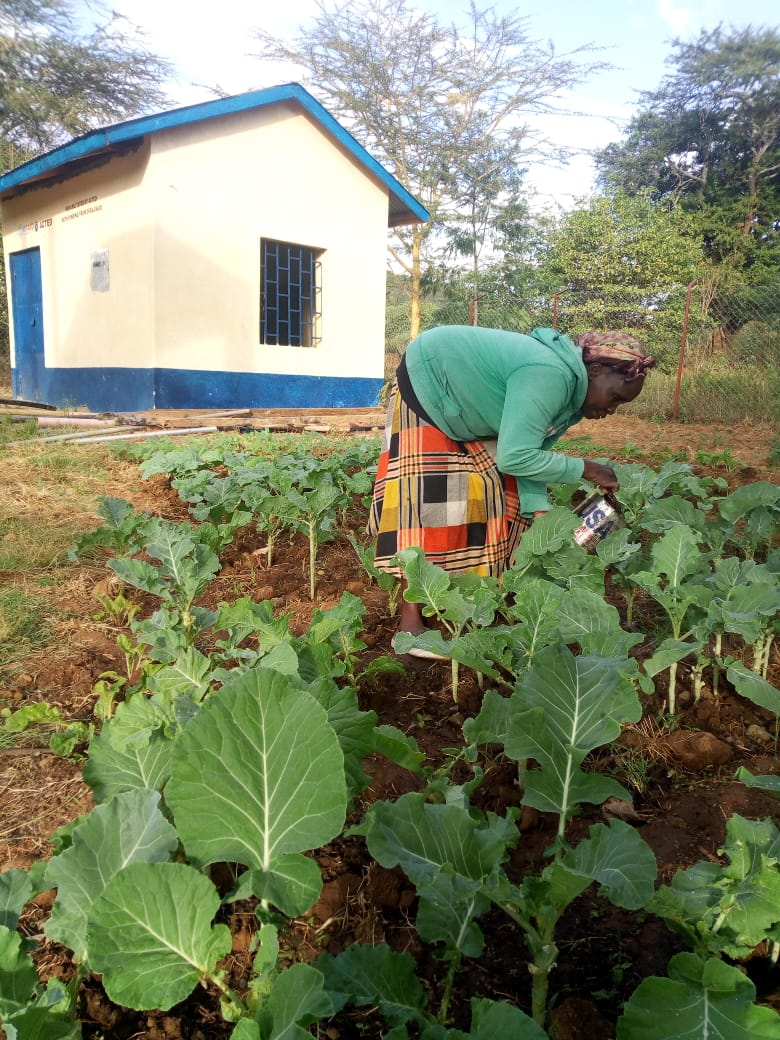
This project was made possible through the support of Synergie Solaire.
